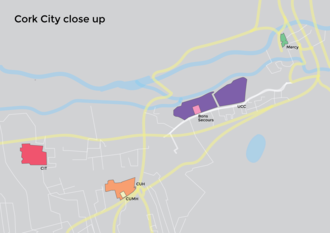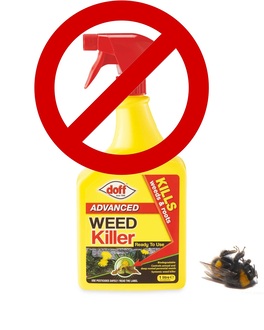- Featured
- Animal Rights
- Anti-racism
- Arts & Culture
- Children
- Climate
- Corporate accountability
- Crime
- Disability rights
- Economic
- Education
- Environment
- Food and Sustainable Production
- Gender Equality
- Governance and Transparency
- Health
- Housing
- LGBT Rights
- Mental health
- Northern Ireland
- Planning
- Privacy and Data Protection
- Rural Inequality
- Social Justice
- Trade
- Transport and Infrastructure
- Workers' Rights
- More
-
Remove Columbus Memorial in GalwayIn light of the global Black Lives Matter movement, Galway City cannot, in all conscience, allow a memorial to a coloniser who stands for the millennia of systemic oppression, murder and enslavement of millions of non-white peoples to remain, as if his supposed brief visit to Galway was something to be proud of. It needs to be removed immediately, and better still, be replaced with a memorial to his victims.134 of 200 SignaturesCreated by Miriam de Búrca
-
Cork Hospital CyclewayImagine cycling safely from Cork University Hospital/Cork University Maternity Hospital to Grand Parade and on to the South Infirmary Victoria University Hospital, all the while separated from cars and HGV trucks by protective barriers. On the way you pass the Bon Secours Hospital, UCC and the Mercy University Hospital. Health care workers have always cycled to work, and between the various city hospital campuses. But during the COVID19 pandemic, they were given a glimpse of what it might be like to cycle safely on the then quieter streets. The traffic is back. Now as lockdown eases we urge Cork City Council to boldly implement measures that will protect us, and all citizens of Cork, who make these journeys. Clapping for healthcare workers is easy. Making the city better for all citizens requires vision and leadership. The people of Cork were recently asked through social media: Would you like to see your front-line healthcare workers protected on their way to and from work? The response was unanimous: YES! #CorkHospitalCycleway. A protected cycleway. If this is something you'd be interested in? We'd love to hear from you. Are you a healthcare worker, patient, student or local business? What would this mean to you? Where do you work? Tell us your story… We will pass on your views to the various executives in our hospitals, UCC, Cork City Council. Let us remember the recent losses and sacrifices made by our front-line workers, by enacting a real and positive change to transform our city into a healthier, safer and more caring place to live and work.3,226 of 4,000 SignaturesCreated by IDE Irish Doctors for the Environment
-
Take down the John Mitchell statueWe should not have a statute of a white supremacist proudly on show in Northern Ireland. It should be removed as a mark of solidarity and support for the Black Lives Matter movement.19 of 100 SignaturesCreated by Nicola Browne
-
Growing ClongriffinGrowing local community, business and amenities.744 of 800 SignaturesCreated by Игор Давид
-
Reduce air pollution by combining delivery tripsThe improvement in air quality and the reduction in vehicle traffic during the lockdown has been immense. Many more people are choosing to shop online rather than making needless journeys to shops; as a result, delivery trips have increased. It's easily possible for a single household to receive a delivery each day of the working week, sometimes multiple drops on a single day from different companies. Being able to declare a preference for deliveries to occur on specific days of the week would allow delivery firms to combine drops, to the benefit of road users and the quality of our air.12 of 100 SignaturesCreated by Brad Macpherson
-
Fingal Fix ItIt is a health hazard and an environmental hazard. sewage plants have a capacity and this was deemed over capacity by Fingal County Council in 2005 they then added the equivalent of 150 septic tanks to the plant and are now about to add another 43 septic tanks and a 100 bed Nursing Home. F05A/0837 F11A/0116 F15A/0116 These three planning permission state the plant is beyond capacity. they can be viewed on https://www.fingal.ie/view-or-search-planning-applications320 of 400 SignaturesCreated by Philip Gaffney
-
Save Cavan Midwifery Led Unit (MLU)A still unknown decision has led to the MLU in Cavan being effectively closed in all but name under the guise of a merger with the consultant-led unit. This may be the third time Cavan MLU has faced closure and the pregnant people in the area have faced limitation of their care choices. The effective closure of the Midwifery-Led Unit on Monday 1st of June 2020 and the manner in which this decision has been taken, with no public consultation or formal announcement from either Cavan General Hospital or the RSCI group, who we understand are leading of this decision, shows a clear lack of understanding to the needs of those in the surrounding area. The claim that it is not a downgrading of service provision is simply false. For all who have accessed the MLU, either as a service user, healthcare professional or student, this closure will have significant impact on practice and care provision. To our knowledge, no rationale has been given to explain the decision. National and international evidence supports the expansion of midwifery led services. Closure of the unit limits choices for pregnancy care in direct opposition of this evidence. We cannot emphasise strongly enough 1. The retrograde nature of this decision which flies in the face of all the international evidence on best birth practices 2. And which spells the death knell of the 2016 Maternity Strategy which was specifically committed to the expansion of MLUs, not their closure Our model of maternity care relies on the majority of women going through a system of GP referral to an obstetric unit or maternity hospital. Despite the National Maternity Strategy, the dominant model of care across all our 19 maternity units is a consultant-led model of care. We have only the two midwifery-led units in Ireland (Cavan and Drogheda) and midwifery clinics across the maternity system are far too few. -- In international terms, our model of maternity care does not offer women choice of models of maternity care, something the National Maternity Strategy acknowledges clearly. Indeed, the Irish model of maternity care is at odds with best international evidence on the effectiveness of models of maternity care - The 2016 National Maternity Strategy, called for many more MLUs to be built. Instead this has not only been completely stalled - its implementation committee has met only four times up to 2019 (PQ 14615-19; PQ 14616) and the budget of the strategy has been slashed - The HIQA maternity report (February 2020) highlighted the lack of progress in supported care pathways under the National Maternity Strategy The 2003 Hanly Report on medical staffing with its overall aim of increasing still further centralisation of all hospital services continues to cast a shadow over the relevance of the small Cavan MLU – which has never had the full support of senior clinical and management staff in Cavan. If it had, it would be used to capacity and would not now be ‘merged’ with the consultant-led services. Who is affected? *this is not an exhaustive list of affected groups* Pregnant people are entitled to choice in care provision. There is no evidence at present to show that this has been supported or considered in the move to close the Cavan MLU. We hope to hear from service users to determine what plans are in place for those currently booked in the unit, those who were potentially being transferred back to the service following obstetric assessment, and those who had previously or planned to access midwifery led care in Cavan. Supporting practitioners in the Cavan/Monaghan area to continue the provision of Midwifery Led Care is vital. Evidence of support and solutions offered thus far to the midwives within the unit is needed so that as a national community of professionals and experts in normal pregnancy care can come together to save Cavan MLU. Midwives are the experts in providing pregnancy care and a wealth of evidence supports this model, referred to as “supported care” in the Maternity Strategy. Student midwives who began their training from 2018 in Dundalk Institute of Technology must complete Midwifery Led Unit placement experience as a core area, a change from its specialist area status before 2018. This reflects the importance of midwifery led care experience in well rounded learning. If Cavan MLU were to close, students would be limited to the Drogheda MLU to achieve the hours in order to qualify and register as midwives. It is already difficult for these MLU hours to be achieved between two units with the number of students requiring the necessary time in midwifery led services. The limitations that this closure will place on students has immediate and long-term consequences. Students in the 2019 cohort were due to attend Cavan MLU for placement in March/April and must make up this time due to COVID19. These students are now in limbo regarding completing these hours and gaining critical core learning experience. USEFUL LINKS; National Maternity Strategy 2016-2026 >> https://www.gov.ie/en/publication/0ac5a8-national-maternity-strategy-creating-a-better-future-together-2016-2/ HIQA Maternity Services report February 2020 >> https://www.hiqa.ie/sites/default/files/2020-02/Maternity-Overview-Report.pdf HSE / TCD 2009 MidU study >> https://nursing-midwifery.tcd.ie/assets/publications/pdf/midu-report.pdf Association for Improvements in the Maternity Service Ireland - Midwifery Led Care information >> http://aimsireland.ie/midwife-led-care/#:~:text=Midwife%2Dled%20services%20for%20eligible,further%20attention%20 AIMSI “What Matters to You” Survey 2014/2015 >> http://aimsireland.ie/care-choices/ Bump2Babe – Cavan General Hospital survey answers CLU >> http://www.bump2babe.ie/all-answers/unit/0/ MLU >> http://www.bump2babe.ie/all-answers/unit/1/11,586 of 15,000 SignaturesCreated by Laura Henry
-
Right to Work for Asylum Seekers in IrelandAsylum seekers are restricted from working in Ireland until they have been in the country for over 9 months. Prior to 2018 Asylum Seeker in Ireland were banned from working indefinitely. This was overturned because a Supreme Court ruling in a case, NHV, decided Ireland's policies violated fundamental rights. These historical policies restricting asylum seekers from working fuelled a cycle where people become trapped in direct provision centres and are subjected to inadequate living standards. The restrictions still imposed since 2018 are still much longer than other EU Countries such as Sweden and Portugal which allow asylum seekers to work immediately. Ireland had a recent chance to improve the lives of asylum seekers considerably and choose less restrictive options available to them when allowing asylum seekers to work. They chose lengthier waiting options for the right to work. This is contrary to recent rhetoric offered by some Irish politicians. (https://www.irishtimes.com/news/politics/direct-provision-system-not-comparable-with-a-man-killed-by-police-varadkar-1.4270979) Allowing asylum seekers a right to work is a step towards combating racism in Ireland, slightly ameliorating the detrimental impact of direct provision in Ireland, and recognising the human rights and dignity of asylum seekers in Ireland. MASI are an excellent grassroots organisation who are campaigning tirelessly on this issues. They can be followed and supported here: https://www.masi.ie/support-us/ *The views expressed above are my own and are I am not directly attributing them to any of the organisations mentioned89 of 100 SignaturesCreated by Cáit Nic Ghiolla Chomhgaill
-
Runwood Homes must pay it's own staffAccording to their accounts, Runwood Homes made a profit of almost £15 million last year. They have a record of numerous failings and examples of poor care and ill treatment at many of the eleven care homes they run in Northern Ireland. These include Clifton Nursing Home where nine residents died of Covid 19, and which is now subject to an official review. Despite this the company are set to receive money from an £11.7 million grant from the public purse to pay staff on sick leave, and purchase specialist equipment.5 of 100 SignaturesCreated by Nicola Browne
-
PLANNING FOR ALLWHAT IS PLANNING FOR ALL #planningforall #planningwhatplanning #planningjustice THE SHORT VERSION A brand new planning system designed by the ordinary citizens and most excluded first for the ordinary citizens and most excluded first. The LONG VERSION The planning system governs most aspects of our lives and dictates how our land, natural resources and built-in environment are disposed of. Therefore every Irish resident should be able to take part in it. However, the reality is that only a few of us are able to do so: most of the time, taking part in planning requires financial resources, free time, specific skills, expertises, qualifications and finally established relationships with local authorities and elected representatives. In short, deciding about our land, natural resources and built-in environment is the privilege of a very few privileged among us. Each and every day, all across Ireland, communities try to contest undemocratic planning decisions; however, they are not always successful. Sometimes, they put all their financial resources and energy in bringing a case to court. They may be able to succeed once, but the next day another planning submission is made and all their energy and financial resources are gone. It is obvious to us that cases cannot be solely fought on an individual basis; a more profound systemic change is also needed. By signing the present petition, you support our demand for the implementation of a radically new planning system: we believe that everyone should decide about what the new system should be like, especially those who have long been excluded from local and national decision-making. We ask the government to organise a period of genuine consultation to define a new, inclusive, democratic planning system that would be equitably accessible by all. A planning system by the ordinary citizens for the ordinary citizens. Finally, by signing the present petition, you support our demand that, whatever form the new planning system may take, it should be: free at all stages, inclusive of all forms of knowledge including local expertise, equitably accessible by all no matter your race/ethnicity/nationality, gender/sex, age, (dis)abilities, income, professional/family situation and living conditions and finally fully integrated at local, city, county, national level so as to avoid sacrificed communities/dumping zones. Please fill in our quick survey about your own planning experience by clicking on the following link: https://docs.google.com/forms/d/e/1FAIpQLSeUFyrrHqErgahWH4k82mOhVGQnuMiyIDpcZywFQyjtqOgZeg/viewform?usp=pp_url203 of 300 SignaturesCreated by All People All Nature

-
Please help to STOP ALDI Stores selling Glyphosate - cause of cancer and killer of Bees!It is well known to us all I hope that Glyphosate based weedkillers are the cause of various cancers and one of contributing factors of killing pollinating bees worldwide! ALDI is planning to sell Glyphosate based Weedkilling product starting 04th of June so please help to pledge and appeal to ALDI management to stop offering this harmful product on their store shelves! Ireland is one of the last countries in Europe, which is seriously lagging behind when it comes to banning Glyphosate based products from being marketed! This is TIME for a CHANGE! What countries are banning Roundup? Since the International Agency on Research on Cancer found glyphosate to be probably carcinogenic in 2015, several countries have banned or restricted glyphosate use. Austria became the first EU country to ban glyphosate in July 2019. Germany announced in September that it will begin phasing out the controversial weedkiller by 2023. Countries that have some sort of legislation around glyphosate include: Argentina Australia Austria Bahrain Belgium Bermuda Brazil Canada Columbia Costa Rica Czech Republic Denmark El Salvador France Germany Greece India Italy Kuwait Luxembourg Malawi Malta Mexico Netherlands New Zealand Oman Portugal Qatar Saudi Arabia Scotland Slovenia Spain Sri Lanka St. Vincent and the Grenadines Sweden Switzerland Thailand United Arab Emirates United Kingdom Vietnam While the United States has been slow to accept the science behind glyphosates’ link to carcinogens, there is a growing movement among governments to protect the health of their citizens and the environment.140 of 200 SignaturesCreated by Maurico Di Pipistrello
-
No spray, the odd mow, let the flowers growDuring this pandemic, many of our green areas have been allowed to grow wild, with no council mowing ongoing. Green areas have been allowed to flourish, so that we have yellows, purples, blues, whites, as well as lush green grass. When council workers are allowed to return, we want to keep wild the areas that don't require mowing (e.g. grass verges, fields in which only the edges are walked). Wexford is already doing great work with the "Lives Lived on the Edge" campaign and our no mow zones. Let's keep it up and do even more.50 of 100 SignaturesCreated by Fi ORourke












